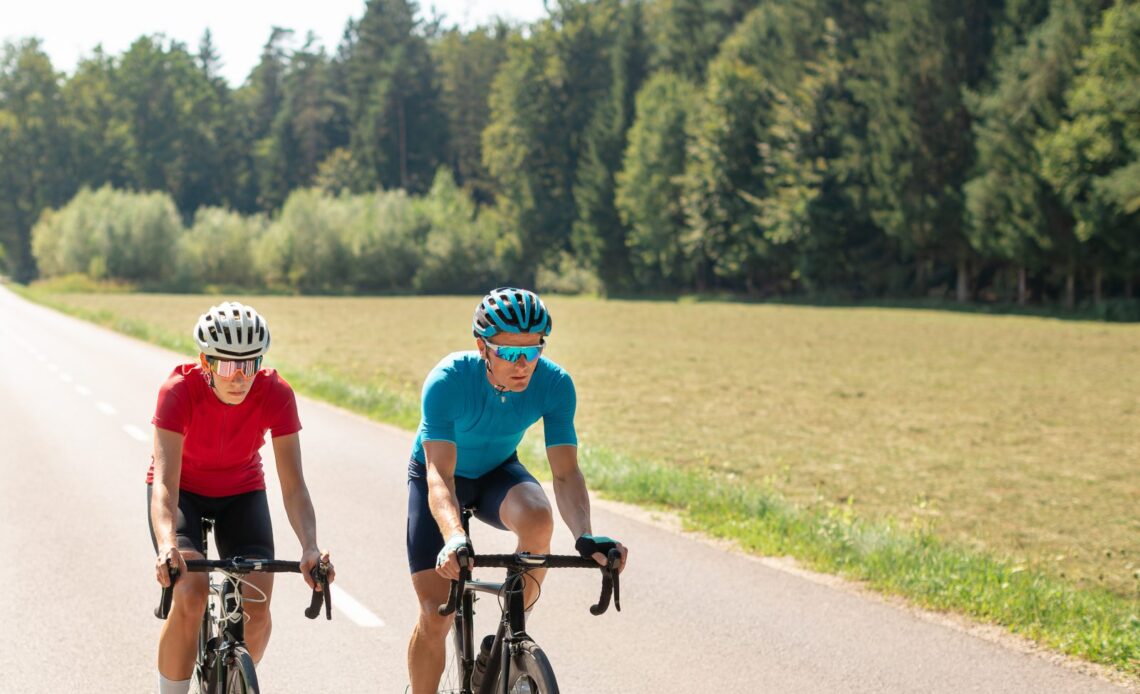Going uphill is a big part of cycling, and if you want to be a better rider, you need to be a better climber, too. Here’s some tips on how to feel better when the road heads up.
Training
The obvious answer is to work on your fitness. Incorporate long rides and hill repeats into your training regimen to build endurance and leg strength. Focus on both aerobic and anaerobic conditioning to improve your overall climbing ability.
Off-bike exercises such as squats, lunges, and leg presses can strengthen your muscles, particularly the quadriceps, hamstrings, and glutes, essential for powering up hills.
When you hit the hill
Cadence
Aim for a steady cadence (around 70-90 RPM) to conserve energy and reduce fatigue. Use lower gears to maintain a comfortable cadence rather than pushing a big gear that could lead to early exhaustion.
Pacing
Start the climb at a sustainable pace. Avoid going into the red too early; instead, find a rhythm that allows you to maintain effort throughout the climb.
Proper positioning
Seated vs. standing
Use a combination of seated and standing riding to vary muscle use and relieve pressure on certain muscle groups. Seated climbing can be more efficient for maintaining traction and conserving energy over long climbs.
Technique
Keep your upper body relaxed and maintain a stable core. Shift your weight slightly forward on steeper gradients to maintain traction and control.
Mental strategies
Focus on breathing
Deep, controlled breathing helps oxygenate your muscles and manage fatigue.
Break it down
Mentally break the climb into smaller segments or landmarks to stay motivated and track progress.
Positive reinforcement
Use positive self-talk and visualization to stay confident and focused on your goal.
Nutrition and hydration
Preparation
Ensure you’re well-fueled before the climb with carbohydrates and adequately hydrated.
Fuelling
Consume small amounts of food and water to maintain energy levels and prevent dehydration. Although drinking is easy to do up a hill, eating isn’t always optimal. Gels are much easier to get down than solid foods.
Practise, practise, practise
Climbing efficiently improves with practice and experience. The more climbs you tackle, the better you’ll understand your body’s capabilities and limitations.
Click Here to Read the Full Original Article at Canadian Cycling Magazine…

